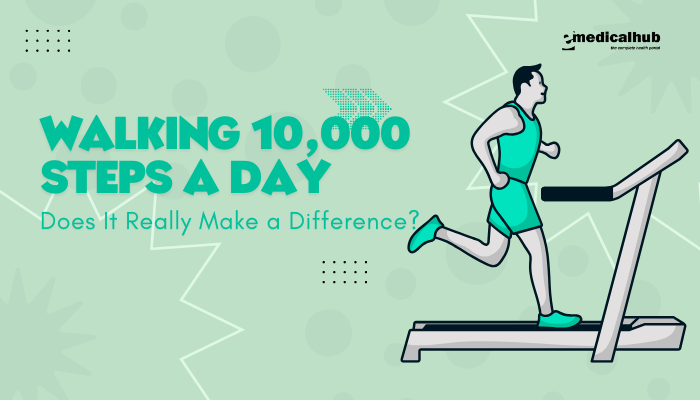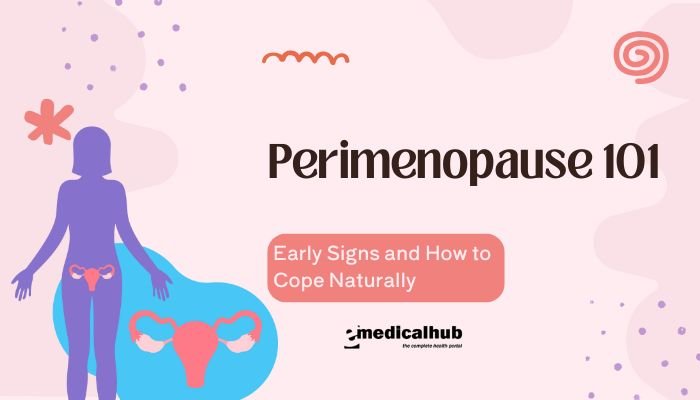Introduction
Cannabidiol (CBD) oil has exploded in popularity over recent years, touted as a natural remedy for a range of health concerns from chronic pain and anxiety to sleep disturbances. Derived from the cannabis plant, CBD is a non-intoxicating compound that has captured the public’s attention as a potential alternative or complementary treatment to traditional medications.
With claims ranging from potent pain relief to improved sleep quality, many wonder: Is CBD oil truly effective, or is it just another wellness trend fueled by hype and anecdote?
This article aims to provide a comprehensive overview of CBD oil, exploring its proposed mechanisms, scientific evidence regarding its benefits, and its safety profile. We will discuss its use for pain relief and sleep aid, among other applications, while addressing common concerns and regulatory issues.
Whether you’re considering CBD oil for chronic pain management, as a sleep supplement, or simply curious about its therapeutic potential, read on for an in-depth examination of what the research and clinical experiences reveal.
Disclaimer: The information provided in this article is for general educational purposes only and does not substitute for professional medical advice. If you have any health concerns or are considering using CBD oil, please consult a qualified healthcare provider before starting any new treatment.
What Is CBD Oil?
Definition and Background
Cannabidiol (CBD) is one of over 100 cannabinoids found in the Cannabis sativa plant. Unlike tetrahydrocannabinol (THC), CBD does not produce a “high” or intoxication. CBD oil is typically produced by extracting CBD from hemp (a low-THC variety of Cannabis sativa) and diluting it with a carrier oil such as coconut, hemp seed, or olive oil.
- Non-Psychoactive: CBD does not cause euphoria, making it appealing for users seeking therapeutic benefits without mind-altering effects.
- Extraction Methods: Common methods include CO₂ extraction, which is considered safe and efficient.
- Product Forms: Available as oils, tinctures, capsules, edibles, and topicals.
Historical and Cultural Context
CBD and other cannabinoids have been used in traditional medicines for centuries. Ancient cultures in Asia and the Middle East recognized the therapeutic properties of the cannabis plant. However, modern interest in CBD has surged only recently due to evolving legal frameworks, increased research funding, and a growing desire for natural remedies.
Legal Status and Regulation
- United States: The 2018 Farm Bill legalized hemp-derived CBD (containing less than 0.3% THC), though state laws vary.
- Global Landscape: Legal status ranges from fully legal to strictly prohibited, with ongoing debates about standardization and quality control.
- FDA Oversight: The U.S. Food and Drug Administration has approved one CBD-based medication for epilepsy (Epidiolex) and continues to evaluate CBD’s safety and efficacy for other conditions.
Proposed Mechanisms of Action
Interaction with the Endocannabinoid System (ECS)
The human endocannabinoid system plays a crucial role in regulating pain, mood, sleep, and immune function. CBD is thought to interact indirectly with this system:
- Receptor Modulation: While CBD does not bind strongly to cannabinoid receptors (CB₁ and CB₂) like THC, it may influence them by increasing the availability of the body’s natural endocannabinoids.
- Enzyme Inhibition: CBD may inhibit the enzyme FAAH, responsible for breaking down anandamide, a neurotransmitter linked to pain relief and mood improvement.
- Neurotransmitter Influence: CBD might modulate other receptors, such as serotonin (5-HT1A), contributing to its anxiolytic and antidepressant effects.
Anti-Inflammatory and Analgesic Effects
- Inflammation Reduction: Preclinical studies suggest CBD reduces the production of pro-inflammatory cytokines, which can help alleviate pain and swelling.
- Pain Signal Modulation: By influencing ion channels and neural signaling, CBD may dampen the transmission of pain signals to the brain.
Effects on Sleep
- Regulation of Sleep Cycles: CBD may affect the sleep-wake cycle by interacting with receptors involved in circadian rhythm regulation.
- Anxiolytic Impact: Reducing anxiety can indirectly improve sleep quality and duration.
- Direct Sedative Effects: While CBD is not a sedative in the traditional sense, its calming effects can help promote better sleep, particularly in individuals with anxiety-related insomnia.
CBD Oil for Pain Relief
Chronic pain is one of the most common reasons individuals seek out CBD oil. Studies indicate that CBD may help alleviate pain through several pathways:
- Arthritis and Joint Pain: Research in animal models and preliminary human trials suggests CBD may reduce inflammation and pain in conditions like osteoarthritis.
- Neuropathic Pain: CBD has shown promise in modulating nerve signals in neuropathic pain conditions, including diabetic neuropathy and multiple sclerosis-related pain.
- Musculoskeletal Pain: Some patients report significant reductions in muscle soreness and tension after using topical or oral CBD formulations.
Comparison with Conventional Pain Medications
- Opioids: CBD offers a non-addictive alternative to opioid painkillers, with a lower risk of dependency and fewer severe side effects.
- NSAIDs: Unlike nonsteroidal anti-inflammatory drugs (NSAIDs), CBD does not pose risks such as gastrointestinal bleeding or cardiovascular issues, although more research is needed.
- Mechanistic Differences: Conventional pain medications often target singular pathways, whereas CBD’s multi-faceted approach (anti-inflammatory, receptor modulation) might provide broader pain relief.
Patient Perspectives and Anecdotal Evidence
Many chronic pain sufferers have turned to CBD oil after exhausting conventional options. Common reported benefits include:
- Reduced need for pain medications.
- Improved mobility and reduced stiffness.
- Enhanced quality of life without the side effects typical of pharmaceuticals.
CBD Oil as a Sleep Aid
Sleep Disruption and Anxiety
Sleep disturbances are closely linked to anxiety and chronic pain. CBD’s potential to reduce anxiety may also contribute to improved sleep quality:
- Lowering Cortisol Levels: By modulating stress responses, CBD might reduce nighttime cortisol spikes that interfere with sleep.
- Enhancing Relaxation: Its calming effects can help ease the mind before bedtime.
Evidence from Clinical Studies
Several studies have explored CBD’s impact on sleep:
- Case Series and Pilot Studies: Many report improvements in sleep quality, reduced insomnia, and more restful sleep, particularly in individuals with anxiety-related sleep issues.
- Variability: Results can vary widely based on dosage, formulation, and individual differences. Some users report a calming effect, while others find it too stimulating if taken in high doses.
Best Practices for Using CBD as a Sleep Aid
- Timing: It is generally recommended to take CBD oil about 30-60 minutes before bedtime.
- Dosage: Start with a low dose (e.g., 10-25 mg) and adjust gradually based on your response.
- Formulation: Sublingual tinctures may offer quicker absorption than capsules or edibles, making them preferable for sleep induction.
- Combining with Sleep Hygiene: Incorporate CBD oil into a broader sleep routine, including dimming lights, reducing screen time, and engaging in relaxation techniques.
Beyond Pain and Sleep: Other Potential Benefits
Anxiety and Mood Disorders
- Anxiolytic Effects: Numerous studies indicate that CBD may reduce symptoms of generalized anxiety disorder, social anxiety, and post-traumatic stress disorder.
- Mood Stabilization: By influencing neurotransmitters like serotonin, CBD may help stabilize mood and reduce depressive symptoms.
Neuroprotective Properties
- Cognitive Health: Preliminary research suggests that CBD’s anti-inflammatory and antioxidant properties could protect brain cells, potentially benefiting conditions like Alzheimer’s disease or Parkinson’s disease.
- Reduction of Oxidative Stress: By combating oxidative damage, CBD may contribute to overall brain health and longevity.
Anti-Inflammatory and Immune-Modulating Effects
- Systemic Inflammation: CBD’s ability to lower inflammatory markers may have wide-reaching benefits, including in autoimmune conditions.
- Skin Health: Topical CBD products are gaining traction for their potential to reduce inflammation in skin conditions like acne, eczema, and psoriasis.
Safety and Side Effects of CBD Oil
Common Side Effects
CBD is generally well-tolerated, but some users may experience:
- Gastrointestinal Upset: Nausea, diarrhea, or changes in appetite.
- Drowsiness: Particularly at higher doses, which may be beneficial for sleep but require caution during daytime use.
- Dry Mouth: A common, mild side effect.
- Interactions: CBD can interact with certain medications, including blood thinners and anti-epileptic drugs.
Considerations for Safe Use
- Start Low, Go Slow: Begin with a low dose and gradually increase until you achieve the desired effects.
- Consult a Healthcare Provider: Especially important if you are on medication or have chronic health conditions.
- Product Quality: Choose products from reputable manufacturers that provide third-party lab testing to ensure purity and consistency.
- Monitor Effects: Keep a journal of your dosage, timing, and how you feel to adjust your regimen appropriately.
Regulatory and Legal Considerations
- Legal Status: In many regions, hemp-derived CBD (with less than 0.3% THC) is legal; however, regulations vary by country and state.
- FDA Oversight: The U.S. FDA has approved CBD for specific medical conditions (e.g., epilepsy) but has not approved it as a treatment for pain or sleep. It remains essential to follow local laws and guidelines.
Integrating CBD Oil into a Holistic Health Approach
Complementary Therapies
CBD oil is most effective when used as part of a broader wellness plan:
- Diet and Nutrition: A balanced diet rich in anti-inflammatory foods (fruits, vegetables, whole grains, healthy fats) can complement CBD’s effects.
- Exercise: Regular physical activity improves overall health and may enhance CBD’s pain-relieving and stress-reducing benefits.
- Mindfulness and Meditation: Practices like yoga and meditation can work synergistically with CBD to promote relaxation and mental clarity.
Lifestyle Considerations
- Sleep Hygiene: If using CBD for sleep, maintain a consistent sleep schedule and create a calming pre-bedtime routine.
- Stress Management: Combine CBD with stress-reduction techniques to maximize its potential anxiolytic benefits.
- Regular Monitoring: Track your progress and adjust dosages or usage patterns as needed to ensure you’re meeting your health goals.
Practical Tips for Using CBD Oil
Choosing the Right Product
- Full-Spectrum vs. Isolate: Full-spectrum CBD oil contains trace amounts of other cannabinoids and terpenes, which some believe may enhance efficacy (the entourage effect). CBD isolate is purely cannabidiol.
- Carrier Oils: Look for products using high-quality carrier oils (e.g., MCT oil, hemp seed oil) that support absorption.
- Lab Testing: Verify that the product has been tested for contaminants and that the CBD content matches the label.
Dosage and Administration
- Starting Dose: Begin with a low dose (e.g., 10-25 mg) and increase gradually based on your response.
- Timing: For pain relief, use CBD oil as needed throughout the day. For sleep, take it 30-60 minutes before bedtime.
- Method of Use: Sublingual tinctures allow for faster absorption. Capsules or edibles provide convenience but may have delayed onset.
Combining CBD with Other Wellness Practices
- Integrate with Physical Activity: Consider using CBD oil post-workout to help reduce inflammation and muscle soreness.
- Pair with Mindfulness: Use CBD in conjunction with relaxation exercises, like deep breathing or meditation, to enhance overall calm.
- Monitor and Adjust: Keep a log of your usage, noting any improvements or side effects, to fine-tune your approach.
Frequently Asked Questions (FAQ)
Can CBD oil really relieve chronic pain?
Research suggests that CBD may help alleviate chronic pain by reducing inflammation and modulating pain signals. Many users report improvements in conditions such as arthritis, neuropathic pain, and muscle soreness, although results vary.
Is CBD oil effective as a sleep aid?
Many studies and user reports indicate that CBD can help improve sleep quality by reducing anxiety and promoting relaxation. However, its effectiveness may depend on the dose and individual response.
Are there any side effects of CBD oil?
Common side effects include dry mouth, drowsiness, and gastrointestinal discomfort. CBD may also interact with certain medications, so consult your doctor if you are on other treatments.
What is the difference between full-spectrum CBD and CBD isolate?
Full-spectrum CBD contains a range of cannabinoids and terpenes that may work synergistically (the entourage effect), whereas CBD isolate is pure cannabidiol without additional compounds.
How do I determine the correct dosage for me?
It’s best to start with a low dose and gradually increase until you achieve the desired effect. Consulting a healthcare provider familiar with CBD can also provide personalized guidance.
Can I use CBD oil alongside conventional pain medications?
Many patients use CBD oil as a complementary therapy. However, it is important to consult your healthcare provider as CBD can interact with certain medications, including blood thinners and anti-epileptic drugs.
Is CBD oil legal everywhere?
The legality of CBD oil varies by country and region. In the U.S., hemp-derived CBD with less than 0.3% THC is legal federally, but local laws may differ. Always verify the legal status in your area.
How long does it take to see the effects of CBD oil?
Effects can vary by individual and method of administration. Sublingual tinctures may show effects within 30 minutes to an hour, while capsules or edibles may take longer. Some benefits, like improved sleep or reduced chronic pain, might be noticeable after several weeks of consistent use.
Can CBD oil help with anxiety?
Yes, some studies and anecdotal evidence suggest that CBD oil may reduce symptoms of anxiety by modulating neurotransmitter activity and reducing cortisol levels. However, more research is needed to fully understand its efficacy and optimal dosing.
Are there any long-term risks associated with CBD oil use?
Current research indicates that CBD is generally well-tolerated with a good safety profile. Long-term studies are still ongoing, so it’s important to use high-quality products and consult healthcare providers if using CBD over extended periods.
What should I look for when buying CBD oil?
Look for products that are third-party lab tested, have clear labeling of CBD content, and use quality carrier oils. Reputable brands will provide certificates of analysis (COAs) verifying their product’s purity and potency.
Can I make my own CBD oil at home?
While extraction is technically possible at home, it requires specialized equipment and expertise to ensure safety and quality. It is generally recommended to purchase CBD oil from trusted, reputable sources.
Conclusion
CBD oil has emerged as a promising natural remedy for various conditions, including chronic pain, sleep disturbances, and anxiety. With its origins in the cannabis plant and a growing body of scientific evidence, CBD offers a multi-faceted approach to relief by reducing inflammation, modulating pain signals, and promoting relaxation. While many users report significant benefits, individual responses vary, and not every claim is uniformly supported by rigorous clinical data.
For those considering CBD oil, it is essential to start with high-quality, well-tested products and to begin with a low dose, gradually adjusting based on your needs and responses. When integrated into a broader health and wellness plan—along with proper diet, exercise, and stress management—CBD oil can serve as a valuable complementary therapy.
Ultimately, CBD oil may not be a panacea, but it offers a natural alternative with the potential to improve quality of life for individuals suffering from chronic pain, sleep issues, and anxiety. As research continues to evolve, healthcare providers and patients alike will better understand its optimal use and long-term benefits.
Whether you view it as a potent pain reliever, a sleep aid, or simply a part of your wellness routine, CBD oil remains a topic of great interest and promise in modern integrative medicine.
References
- Blessing EM, Steenkamp MM, Manzanares J, Marmar CR. Cannabidiol as a Potential Treatment for Anxiety Disorders. Neurotherapeutics. 2015;12(4):825-836.
- Zuardi AW. Cannabidiol: from an inactive cannabinoid to a drug with wide spectrum of action. Rev Bras Psiquiatr. 2008;30(3):271-280.
- Walsh JH, et al. Therapeutic potential of cannabidiol in psychiatric disorders. Front Pharmacol. 2018;9:366.
- Devinsky O, et al. Cannabidiol in patients with treatment-resistant epilepsy. N Engl J Med. 2016;375(20):2018-2026.
- Pisanti S, et al. Cannabidiol: State of the art and new challenges for therapeutic applications. Pharmacol Ther. 2017;175:133-150.
- Stockings E, et al. Cannabis and cannabinoids for the treatment of people with chronic pain conditions: a systematic review and meta-analysis. JAMA. 2018;320(23):2448-2461.
- Shannon S, et al. Cannabidiol in anxiety and sleep: A large case series. Perm J. 2019;23:18-041.
- Iffland K, Grotenhermen F. An update on safety and side effects of cannabidiol: A review of clinical data and relevant animal studies. Cannabis Cannabinoid Res. 2017;2(1):139-154.
- Iseger TA, Bossong MG. A systematic review of the antipsychotic properties of cannabidiol in humans. Schizophr Res. 2015;162(1-3):153-161.
- MacCallum CA, Russo EB. Practical considerations in medical cannabis administration and dosing. Eur J Pain. 2018;22(3):455-460.
- National Academies of Sciences, Engineering, and Medicine. The Health Effects of Cannabis and Cannabinoids: The Current State of Evidence and Recommendations for Research. 2017.
- U.S. Food and Drug Administration. FDA and Cannabis: Questions and Answers. Updated 2021.





